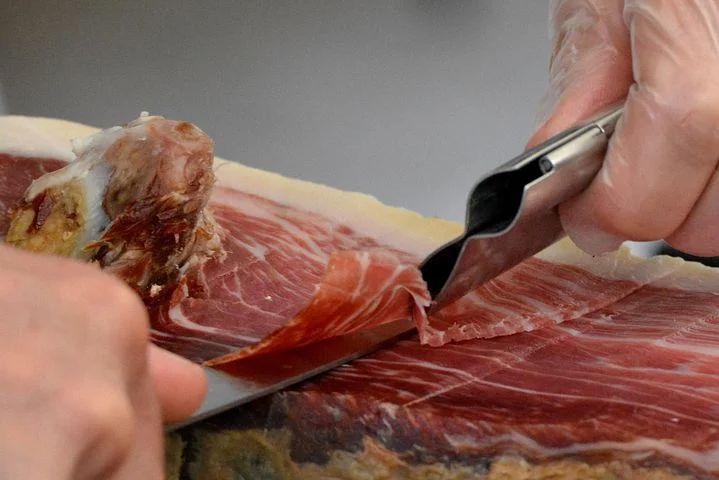Plus a bison meatball sandwich and Filipino fried chicken

The Espresso Martini is arguably the most popular cocktail in the country at the moment, and the Pumpkin Spice Latte has been the most popular coffee drink of the late summer and early fall for a couple of decades. Matthew Izaguirre, co-owner and bar manager of Coral Club in Nashville, combines the two with this. The dining world is constantly evolving, and restaurants are always seeking fresh and exciting ways to captivate their guests. From innovative cocktail creations to globally-inspired dishes, the latest menu additions are leaving patrons buzzing with excitement. Among the new offerings gaining attention are two unique takes on halibut, the indulgence of a PSL Espresso Martini, and a variety of dishes that highlight regional ingredients and sustainability.
One of the most talked-about items on the scene is the Espresso Martini, which is enjoying a resurgence in popularity across the country. This cocktail has become a mainstay at many bars and restaurants, not only because of its smooth, rich flavor but also due to the energy boost it offers, combining the best of both worlds—coffee and liquor. Over the past few years, the Espresso Martini has reigned supreme as one of the most popular drinks in the nation, a cocktail that combines the sophistication of espresso with the indulgence of vodka, creating an irresistible beverage.

This drink, which has gained a cult following, has also seen a creative twist at Coral Club, a vibrant new bar in Nashville, where co-owner and bar manager Matthew Izaguirre has taken it up a notch by blending the Espresso Martini with one of the most beloved drinks of the fall: the Pumpkin Spice Latte (PSL). The Pumpkin Spice Latte is iconic for many reasons, not least because it signals the arrival of fall. For decades, this seasonal drink has been the go-to beverage of late summer and early autumn, drawing a dedicated following who look forward to its return each year. The PSL is essentially a cozy, spiced coffee drink with notes of cinnamon, nutmeg, and cloves, and it’s a flavor profile that people can’t seem to get enough of during the fall months.
By combining the Espresso Martini with the rich, warming flavors of the PSL, Izaguirre is creating an intriguing fusion that speaks to coffee and cocktail lovers alike. The new drink has become an instant hit at Coral Club, blending the nostalgic warmth of the Pumpkin Spice Latte with the sharp energy of an Espresso Martini, creating a beverage that is both festive and indulgent.

While the PSL Espresso Martini is certainly stealing the spotlight, halibut is another ingredient making waves in the culinary world. Halibut is a versatile and prized fish, known for its delicate texture and mild flavor. As restaurants strive to offer fresh, high-quality seafood, halibut has risen in popularity, particularly for its sustainability and relatively lower environmental impact compared to other fish. It’s a prime choice for chefs who want to offer a luxurious yet eco-conscious dish to their guests. At the Washington, D.C. location of Ilili, a Lebanese restaurant with a second location in New York City, halibut takes center stage in a dish that showcases the depth of Lebanese cuisine.
Chef Satinder Vij of Ilili is preparing halibut using a sous-vide technique, which ensures that the fish is perfectly cooked to a tender, melt-in-your-mouth texture. This precise method of cooking allows the natural flavors of the fish to shine while retaining moisture and achieving the ideal doneness. The halibut is then dressed with a sauce inspired by Kishk, a traditional Lebanese dairy-and-grain product that adds a rich, tangy element to the dish. The use of Kishk in the sauce not only honors the heritage of Lebanese cooking but also gives the halibut a modern twist, transforming a simple seafood dish into a flavor-packed experience.

At Spoonbar, located in the picturesque town of Healdsburg, California, halibut is also featured prominently on the menu. Executive Chef Wyatt Keith has developed a special preparation for the fish that gives it a Mediterranean flair. Inspired by the classic Saltimbocca dish, which traditionally features veal wrapped in prosciutto and sage, Keith’s version uses halibut as the star of the show. Instead of sage, he incorporates dill, which gives the dish a fresh, herbal note that complements the richness of the halibut. The dish has been developed in collaboration with Ryan Fancher, Executive Chef of the Piazza Healdsburg Group, which operates the h2hotel where Spoonbar is located. The collaboration has resulted in a carefully curated menu that highlights local ingredients and emphasizes the flavors of the Sonoma County region.
For those looking to enjoy a different kind of protein, bison is also making a splash on restaurant menus, particularly in sustainable and health-conscious dining spots. Sage Regenerative Kitchen in Los Angeles has embraced a sustainable ethos, focusing on the use of locally-sourced and environmentally-friendly ingredients. Their Bison Meatball Pezzolo has been garnering attention for both its taste and its commitment to regenerative farming practices. The dish features Force of Nature bison, a product from Texas that is raised using regenerative grazing techniques, which aim to restore soil health and enhance biodiversity. Regenerative grazing practices not only improve the welfare of the animals but also help reduce the environmental impact of livestock farming.

The bison meatballs are paired with mozzarella cheese from Ohio, sourced from pasture-raised Guernsey cows that produce A2 milk, a variety of milk that is thought to be easier to digest than conventional A1 milk. This combination of sustainable ingredients showcases how chefs are becoming more intentional with their sourcing practices, creating dishes that are both flavorful and environmentally conscious.
And finally, if you’re craving something crispy and full of bold flavors, Filipino Fried Chicken is making its way onto more menus across the country. Known for its golden, crispy coating and juicy interior, Filipino fried chicken stands out because it’s typically seasoned with a unique blend of spices and marinated in a mixture that includes ingredients like soy sauce, garlic, and vinegar. This combination results in a flavor profile that is both savory and slightly tangy, making it a must-try dish for fried chicken enthusiasts.
At restaurants around the country, chefs are constantly experimenting with new ways to introduce global flavors into the familiar world of comfort food. Whether you’re sipping a PSL Espresso Martini, enjoying halibut cooked sous-vide, savoring a sustainable bison meatball sandwich, or digging into Filipino fried chicken, one thing is clear: the dining scene is embracing new flavors and trends that celebrate both creativity and sustainability.
As diners continue to seek new, exciting experiences, chefs and restaurant owners are responding by pushing the boundaries of flavor, technique, and sustainability. From the return of beloved fall beverages like the PSL to innovative seafood preparations and ethical meat sourcing, it’s clear that there’s something for everyone on today’s menus. So, the next time you’re out dining, be sure to try something new and exciting—you might just discover your new favorite dish.
Coral Club
The Pumpkin Spice Latte remains the most popular coffee beverage of this time of year (apple drinks are giving it a run for its money this year, but the PSL still reigns supreme), and the Espresso Martini is a cocktail that just won’t go away. Why more people aren’t combining the two is a mystery, but Matthew Izaguirre is doing just that at Coral Club in Nashville.
At the Washington, D.C., location of the Lebanese restaurant Ilili (there’s one in New York City, too), chef Satinder Vij is cooking halibut in sous-vide and dressing it in a sauce inspired by the Lebanese dairy-and-grain product known as Kishk.
Halibut, specifically from Alaska, is also the star of a dish at Spoonbar in Healdsburg, Calif., where executive chef Wyatt Keith gives it a sort of Saltimboca preparation, but with dill instead of sage. It’s part of the restaurant’s new menu developed in collaboration with Ryan Fancher, executive chef of Piazza Healdsburg Group, which operates the h2hotel where Spoonbar is located.
In Los Angeles, Sage Regenerative Kitchen has a mission to use local and sustainable items, but with more of focus on sustainability in the case of its Bison Meatball Pezzolo, which features Force of Nature bison from Texas, but raised using regenerative grazing practices, and mozzarella cheese from Ohio, but from pasture-raised Guernsey cows producing A2 milk, which is believed to be easier to digest than milk that contains both A2 and A1 dairy proteins.
Immigrant Foods also has a mission, which it calls "gastro-advocacy," highlighting the food of the many cultures that make up the United States, including that of the Philippines, which is the inspiration for its fried chicken.

